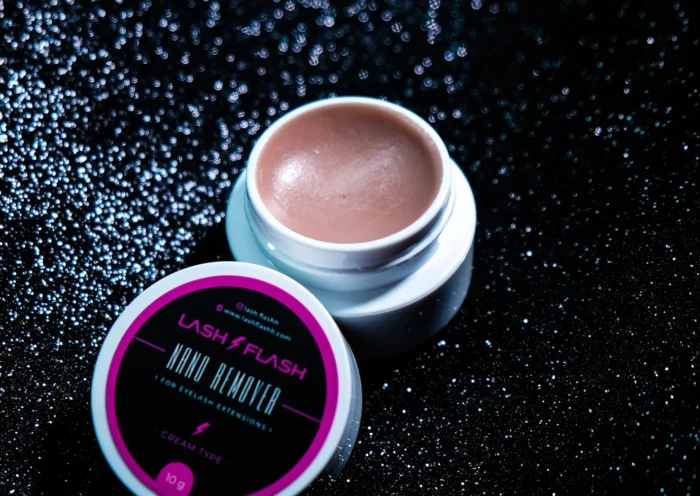Speed up lash application with Lash Flash tools In the competitive world of lash extensions, efficiency is key to success. Lash artists strive to deliver…
Experts issue warning to parents over Blue Whale 'suicide challenge'
Experts issue warning to parents over Blue Whale ‘suicide challenge’ as its linked to death of Brit, 35, who was stabbed to death in Portugal
- Parents should be aware of dangerous trends circulating online, experts claim
- For confidential support call the Samaritans on 116123
Experts have issued a warning to parents over the Blue Whale ‘suicide challenge’ after it was linked to death of Brit who was stabbed to death in Portugal.
The game allegedly originated in Russia in 2016 and is linked to numerous deaths around the world.
The game is thought to encourage teenagers to take part in 50 tasks over 50 days that culminate in suicide with other tasks ranging from watching horror movies to waking at strange hours, and eventually self harming.
Speaking to MailOnline, Dr Mark Griffiths, professor of behavioural addiction at Nottingham Trent University urged parents to be aware of changes in their children’s mood.
He said: ‘If the game even really exists, those in control of the game prey on young impressionable individuals (i.e., young teenagers) particularly those who are depressed and socially withdrawn.’
Last week’s 35-year-old victim, who has not been named, was allegedly attacked after a row broke out between a group of friends while they played the notorious game. A 26-year-old man handed himself in to Portuguese authorities and reportedly confessed to the crime during the Blue Whale game.
A 35-year-old British man has been stabbed to death in woodland in Portugal while he played the Blue Whale suicide game, it has been claimed. Pictured: Police officers prepare to lift the victim’s body, which has been placed in a grey box, into a waiting vehicle
The game is heavily linked with the name Jonathan Galindo, a man that may also be seen with his face painted like Mickey Mouse or a dog
The victim, who has not been named, was allegedly attacked after a row broke out between a group of friends while they played the notorious suicide game, the online challenge which as been linked to a series of deaths around the world
Dr Griffiths added: ‘Parents should be attentive to any changes in their child’s behaviour such as them becoming withdrawn, non-communicative, leaving the house at unusual times and/or getting up very early all the time, taking selfies in dangerous places, an increasing interest in self-harming behaviour (e.g, looking at self-harm-sites), and being fearful of social media.
What is the Blue Whale suicide ‘game’?
The lethal Blue Whale ‘game’ involves 50 tasks in as many days, aimed at ‘creating psychologically traumatising situations’, ending with suicide.
Participants join a ‘group’ where the tasks are set by a group ‘administrator’ and can range from watching horror movies to waking at strange hours, and eventually progresses to self harming.
On the 50th day, the controlling manipulators behind the game, which originated in Russia in 2015, reportedly instruct the participants, who are usually teenagers, to kill themselves.
The game, which reportedly started in Russia, has caused numerous deaths around the world, including Ukraine, India and the United States.
First reports about its victims appeared in Russia in 2016, and in 2020 police in Britain issued a warning to parents to be mindful of their children’s online activities, urging them to talk about the dangers they can face.
‘However, these signs can be indicative of many other things and nothing to do with the Blue Whale Challenge.
‘As a responsible parent, you have every right to check what your child is doing on the internet and on their smartphones.
‘You can also check for blue whale drawings on bedroom walls or on arms and legs.’
This guidance was backed up by Benjamin Williams, a project manager at youth charity Kicsters who urged parents to be more aware of the dangers their children face online.
He told MailOnline: ”Young people are exposed to a number of risks online and the content they access can seem innocent to begin with – This is the case for online games such as ‘The Blue Whale Game’ starting with a series of non harmful or offensive challenges to draw in young people before moving them onto more risky more sinister tasks.
‘We advise that parents take care to note any changes of behaviour in their child and reach out to youth workers, teachers, health professionals, police etc if they have any concerns.’
The game is heavily linked with the name Jonathan Galindo, a man that may also be seen with his face painted like Mickey Mouse or a dog.
The lethal Blue Whale ‘game’ involves 50 tasks in as many days, aimed at ‘creating psychologically traumatising situations’, ending with suicide.
Participants join a ‘group’ where the tasks are set by a group ‘administrator’ and can range from watching horror movies to waking at strange hours, and eventually progresses to self harming.
On the 50th day, the controlling manipulators behind the game, which originated in Russia in 2015, reportedly instruct the participants, who are usually teenagers, to kill themselves.
The game, which reportedly started in Russia, has caused numerous deaths around the world, including Ukraine, India and the United States.
Although the legitimacy of the game is debated, it is recognised by UK authorities who previously issued advice on the trend in 2020.
Northants Police issued a warning on social media about the game and told parents to be mindful of what children are accessing online.
Rocky Gyoury, (right) who lives on Spain’s Costa Blanca, used a needle to make three gashes in his right arm after the account threatened to kill his mother Victoria Mcleish, 45, (left) if he did not comply
Rocky Gyoury was sent messages (right) and then encouraged to make cuts into his arm (left) with a needle
The force said: ‘We are aware of a disturbing social media challenge circulating called the ‘Blue Whale Challenge’ which encourages teenagers to take part in a series of 50 challenges that culminate in committing suicide.
‘This challenge first appeared in 2016 and tasks are given online or through text messages, instant messages or posts on Instagram and Twitter.
‘Please talk to your children about the dangers and tell them not to open any messages or challenges of this kind.’
Northants Police recommend parents look out for children receiving messages or posts relating to Jonathan Galindo, a man that may also be seen with his face painted like Mickey Mouse or a dog.
And also receiving or making references to #f57, #f40 or #IMawhale.
Earlier that year, an 11-year-old British schoolboy was blackmailed into cutting his own wrists by an anonymous Instagram user after an apparent resurgence of the sinister game.
Rocky Gyoury, who lives on Spain’s Costa Blanca, used a needle to make three gashes in his right arm after the account threatened to kill his mother Victoria Mcleish, 45, if he did not comply.
The user – who went only by Johnothan – revealed details of Rocky’s age, school, address, mother’s name, model of phone and data such as his IP address before asking him to ‘play a game’.
For confidential support call the Samaritans on 116123 or visit a local Samaritans branch, see www.samaritans.org for details
For confidential support in Australia call Lifeline: 13 11 14 or Beyond Blue: 1300 22 4636.
Source: Read Full Article







